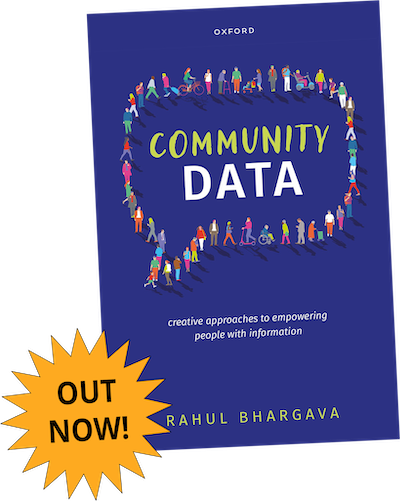Here’s the fourth in my series of round-ups on the latest in artificial intelligence and journalism. Budding uses of AI in newsrooms

The Online News Association launched a new AI in Journalism Initiative to support journalist’s explorations of how AI technologies could help their work. They’re planning to offer training, community building, lesson sharing and broader convening.
Curious about what people are doing now? Columbia Journalism Review shared a vision for how newsrooms can adjust and experiment with AI technologies, and released a new Tow Center report on new organizations’ motivations, techniques and expectations. More concretely, Pew Research wrote about how they used LLMs to pull out guest names from popular podcasts. Their findings? After some validation on a sample, they found the model effectively replaced tedious manual desk work via automation.
Dealing with generated content?
Search engines face the looming challenge of dealing with reams of AI-generated content. 404 reported on Google’s apparent apathy to whether the content is human-created or not. A new scandal emerged and faded quickly: Car & Driver reported on Formula E removing their AI-generated influencer after fan backlash. The key comment? Outrage that motorsports would be so unwelcoming to women that only a virtual one could make it. They apologized, kind of.
This growth in manufactured content spills over to impacts on individuals. University Of Washington professor Dr. Emily Bender found a completely fabricated quote in a story published by Bihar, India news site Biharprabha. Read more the full story from The Quint.
What the future holds
Storybench reported on a few Northeastern events that tried to read the tea leaves and speculate about the future and social impact of AI on media. Jill Abramson and Ethan Zuckerman spoke at length about what the future might hold at an “AI and the Media” event.
A few days later Chris Perry gave a book talk on “Perspective Agents”, offering another take on what the future of AI and media holds. More speculatively, the Open Society Foundation hosted a (now-closed) call for imagining the future of AI and journalism 5–15 years out; keep an eye out for the fully fleshed out scenarios they’ll share this summer.
Continued copyright concerns (and deals)
That lawsuit between The New York Times and OpenAI continues to unfold: ArsTechnica published some commentary about the core legal questions, OpenAI claimed NYT cheated and Professor Nick Diakopoulos shared some experimental results to try and explain parts of the filing. Meanwhile, more publishers are suing OpenAI and Microsoft.
It’s going to take years to determine if this kind of use is transformative or not, but companies are still raking in the training data. Rumors emerged that Reddit signed a licensing deal with an AI company to allow use of their users’s posts to train models. The Verge reported on the breakdown in respect for the robots.txt file that has (so-far) been treated as “rules of the road” for scraping content; now AI companies are simply ignoring it. The results are quite apparent: The Times found Midjourney regularly created images that clearly violate copyright law.
Originally published at https://www.storybench.org on March 14, 2024.


